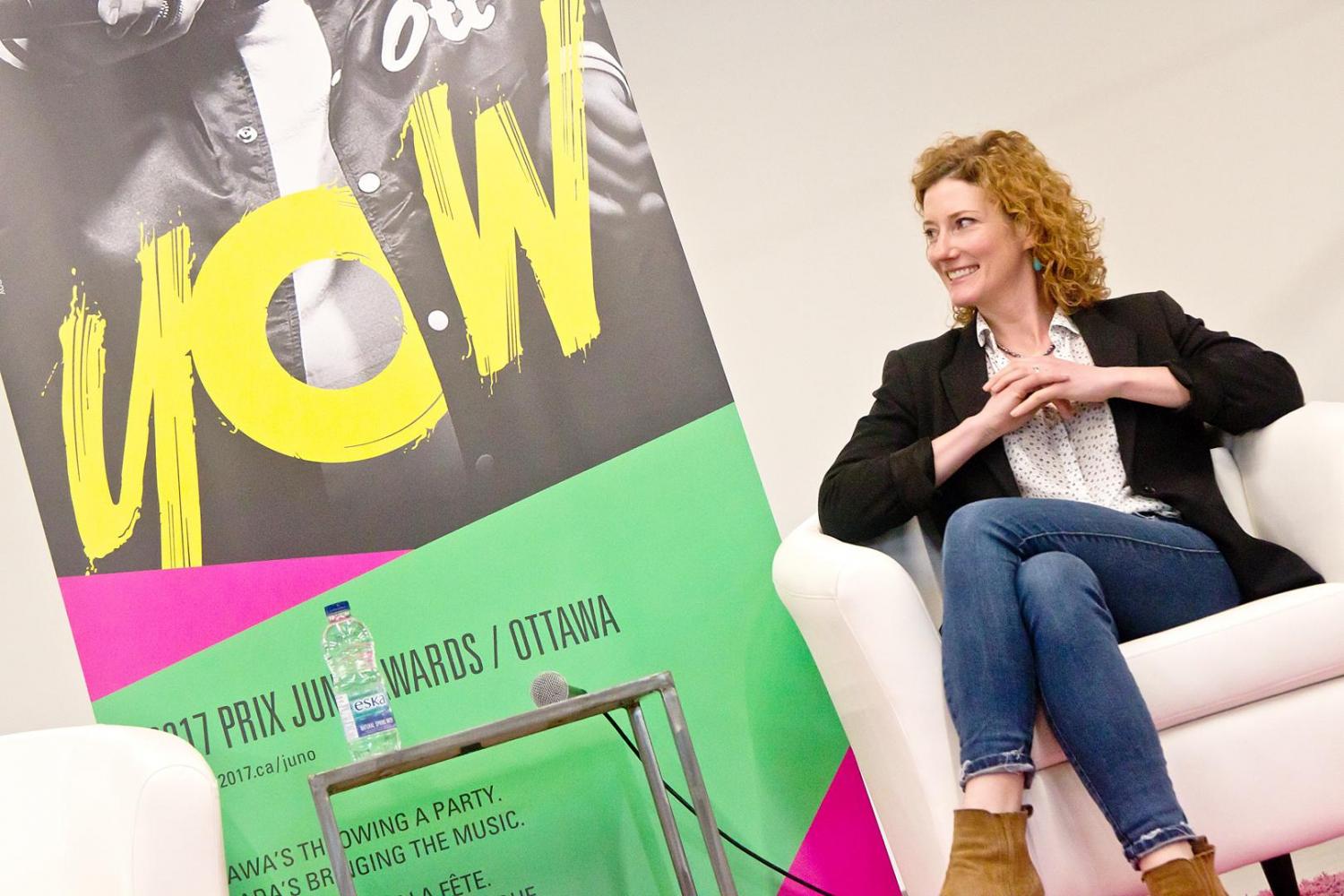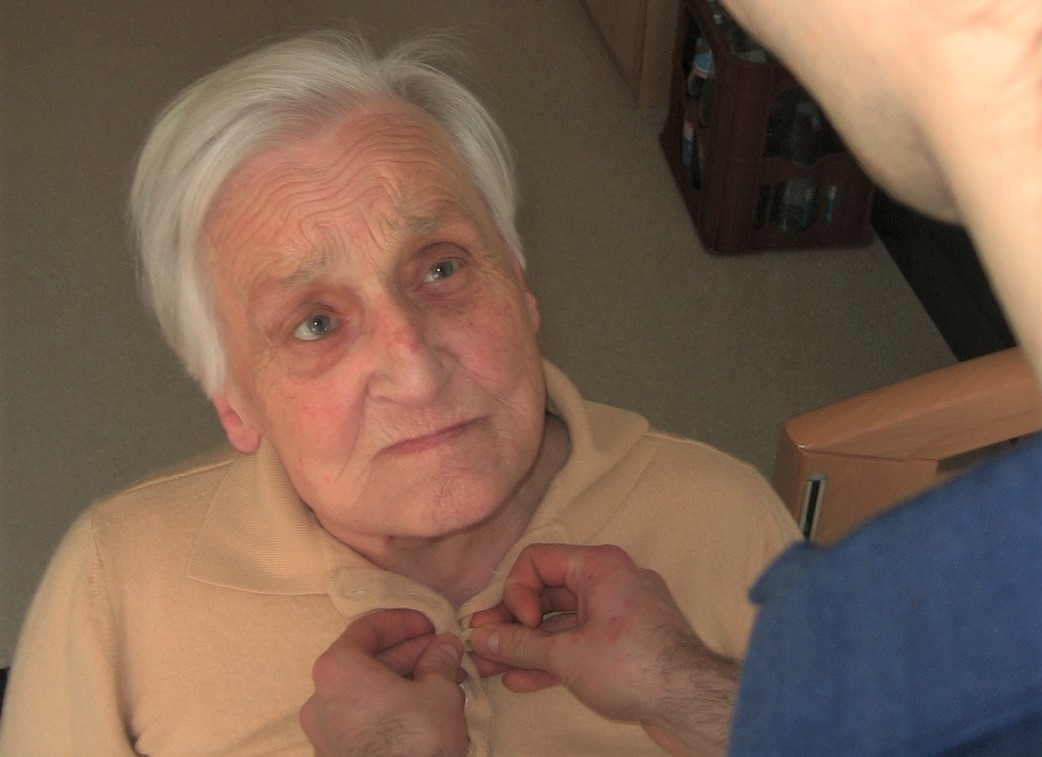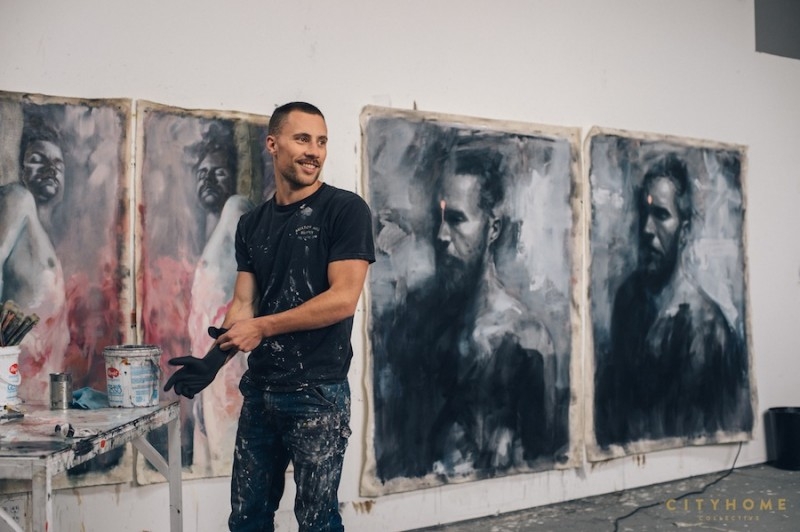
Ottawa Music Scene Leveraging JUNOs to Showcase Local Talent
Photos by Andre Gagne
The 2017 JUNO Host Committee held a special event on Friday morning at the Innovation Centre at Bayview Yards, called “Ottawa as a Music City”. If you're scratching your head wondering whether there should be a question mark at the end of that, you may not be alone. But according to a panel of experts and a highly engaged audience, the answer to that question would be a resounding, YES!
The event planned as part of the JUNO festivities was attended by musicians and artists, venue owners, and of course, politicians.
This is Ottawa after all.

The panel discussions focused on the importance of a thriving music industry for the city’s socio-economic well-being. Moderated by CBC’s Giacomo Panico, the expert panel included Amy Terrill, Executive Vice President of Music Canada, Scott May, owner of Bar Robo, Kelly Symes, General Manager of Festival of Small Halls Ontario, artist/entrepreneur Kathleen Edwards of Quitters Coffee and Lixar 's Shelley Fraser.
 The Honourable Catherine McKenna MP was in the house and kicked off the event with an enthusiastic “Yo Ottawa”! She gave a shout out to all the city’s JUNO nominees, including A Tribe Called Red, then confirmed the Federal Government’s commitment to the arts stating that, now is the time for everyone “to step up and own our Ottawa”.
The Honourable Catherine McKenna MP was in the house and kicked off the event with an enthusiastic “Yo Ottawa”! She gave a shout out to all the city’s JUNO nominees, including A Tribe Called Red, then confirmed the Federal Government’s commitment to the arts stating that, now is the time for everyone “to step up and own our Ottawa”.
With that kind of support coming from the highest level of government, how can anyone doubt that the nation’s capital is poised to become an arts, music and cultural mecca.
Anyone who lives in Ottawa knows well that the music scene has always been strong if a little splintered and hidden. I've been interviewing local bands for almost 15 years and I can tell you there is a wealth of talent in the city, including many past, present and future JUNO nominees and winners. The underground scene is abuzz and the more mainstream scene benefits from the numerous music festivals that take place in our city year round.
But right now, the city’s music scene is at a boiling point and ready as ever to showcase its talent on the world stage. At the epicentre of Canada’s 150th anniversary celebrations and with the JUNO Awards in town this weekend, we are in the midst of a perfect storm.
 With Kitchissippi Ward Councilor Jeff Leiper at his side, His Worship Jim Watson, the Mayor of Ottawa kicked off the event with a special announcement launching a new task force to help galvanize the music industry in Ottawa.
With Kitchissippi Ward Councilor Jeff Leiper at his side, His Worship Jim Watson, the Mayor of Ottawa kicked off the event with a special announcement launching a new task force to help galvanize the music industry in Ottawa.
The City of Ottawa is investing $30,000 towards the development of a Music Strategy for the city and has tasked the Ottawa Music Industry Coalition (OMIC) to spearhead the effort along with music and film industry partners and business leaders.
The strategy will strengthen and grow our music industry as well as other cultural sectors in Ottawa.The Mayor enthusiastically stated that, “Live music is a growth industry in Ottawa. This music strategy will be part of the legacy of the 2017 JUNOs happening in Ottawa.”
A 2015 report produced by the Ottawa Music Industries Consortium, “Connecting Ottawa Music”, reported that while Ottawa has the potential to be an important music hub, it is missing infrastructure as well as a structured network to help it realize that potential.

The report contained recommendations to help the city reap the economic benefits that come from having a healthy music and arts culture. That report was the push that the community needed to pull itself together and unite.
 The creation of OMIC was a direct result of that. Its membership base, consisting of musicians, music venues, producers, print and radio media, businesses and more, has been growing exponentially ever since.
The creation of OMIC was a direct result of that. Its membership base, consisting of musicians, music venues, producers, print and radio media, businesses and more, has been growing exponentially ever since.
 Another groundbreaking report highlighted in the panel discussions was authored by panelist Amy Terrill from Music Canada and focuses on how cities around the world are leveraging the value of their local music economies.
Another groundbreaking report highlighted in the panel discussions was authored by panelist Amy Terrill from Music Canada and focuses on how cities around the world are leveraging the value of their local music economies.
More than just a good time, music events are increasingly recognized as economic boon for cities. “The Mastering of a Music City, Key Elements, Effective Strategies and Why it’s Worth Pursuing” represents a roadmap that communities of all sizes can follow to realize the full potential of their music economy.
 Kathleen Edwards, a multiple JUNO nominee was also part of the panel. Ironically, she left the music biz at what was arguably the peak of her career and returned to her home town, not as an artist, but as a business owner.
Kathleen Edwards, a multiple JUNO nominee was also part of the panel. Ironically, she left the music biz at what was arguably the peak of her career and returned to her home town, not as an artist, but as a business owner.
She has opened a coffee shop just outside the city, named Quitters Coffee (the humour isn't lost on us).
She expressed that venues need to ensure that artists have a positive experience when performing at the too few venues in the city. With her small venue located in Stittsville, she emphasized that we should be connecting the core to the periphery because there’s an untapped market on the outskirts of the city.
On this note, panelist Shelley Fraser, Director of Marketing and Communications at Lixar IT who has a special interest in supporting local talent, suggested that public transportation could be improved to allow patrons to travel more easily to venues outside the city core.
 In one of the more moving moments of the morning, panelists and speakers recognized the presence of eminent music philanthropist Harvey Glatt, who was hailed as a major influence for many Ottawa artists and music enthusiasts.
In one of the more moving moments of the morning, panelists and speakers recognized the presence of eminent music philanthropist Harvey Glatt, who was hailed as a major influence for many Ottawa artists and music enthusiasts.
Mr. Glatt who turned 83 last week founded CHEZ 106 FM radio in Ottawa in 1977.
The station just recently celebrated its 40th anniversary. In early days, he opened a successful music retail outlet, Treble Clef, that grew into a 15-store chain. He promoted concerts in Ottawa with such headliners as Pete Seeger, Bob Dylan, Johnny Cash, The Rolling Stones, Jimi Hendrix and Led Zeppelin.
Mr. Glatt, who continues to be involved in the music industry today, played a significant role in the careers of Bruce Cockburn, David Wiffen and local artist, Lynn Miles.
Kelly Symes shared her unique experience as General Manager of the Festival of Small Halls  Ontario which makes use of non-traditional venues from churches to old barns. Ottawa Life Magazine asked Kelly about her thoughts on the local music scene.
Ontario which makes use of non-traditional venues from churches to old barns. Ottawa Life Magazine asked Kelly about her thoughts on the local music scene.
Ottawa Life: How much do you think the city has evolved in recent years in terms of a go-to live music destination?
Kelly Symes: In the last 5 years I've seen a considerable increase in the number of high quality local bands that Ottawa produces. It also feels like the local music community is more committed and motivated than ever to create opportunities for local artists and bands, creating a vibrant scene here in the city and the surrounding region. This vibrant scene undoubtedly attracts visitors to town at any given point and I think we definitely see an increase in tourism generated by live music during events like Bluesfest, Jazz Fest, Arboretum, Ottawa Explosion, CityFolk, and many more.
Ottawa has so many music festivals, do you think they contribute to the city's growth and economy?
I think that festivals absolutely have a positive economic impact here in the city. Hotels benefit with room bookings, people frequent bars, restaurants and shops. They spend money on transportation and parking. Our festivals show off the many incredible flavours that Ottawa has to offer.
What are the barriers that Ottawa needs to overcome to grow as a music city or destination?
We need a more integrated and collaborative music industry that includes many different voices at the table. We need businesses to get involved and see the value in sponsoring, promoting or even hosting live music. We need the City to to champion Ottawa as a music destination. And most importantly, we need to celebrate and encourage everyone who currently plays music professionally, works, volunteers, or participates in the music community to keep doing what they're doing.
While Canada has long been hailed internationally for its DIY independent music scene, Ottawa has been a hotbed of talent for as many years. Having watched local artists emerge, grow and succeed, it should come as no surprise that Ottawa is welcoming the nation’s finest for the 2017 JUNO Awards with open arms and in style.









